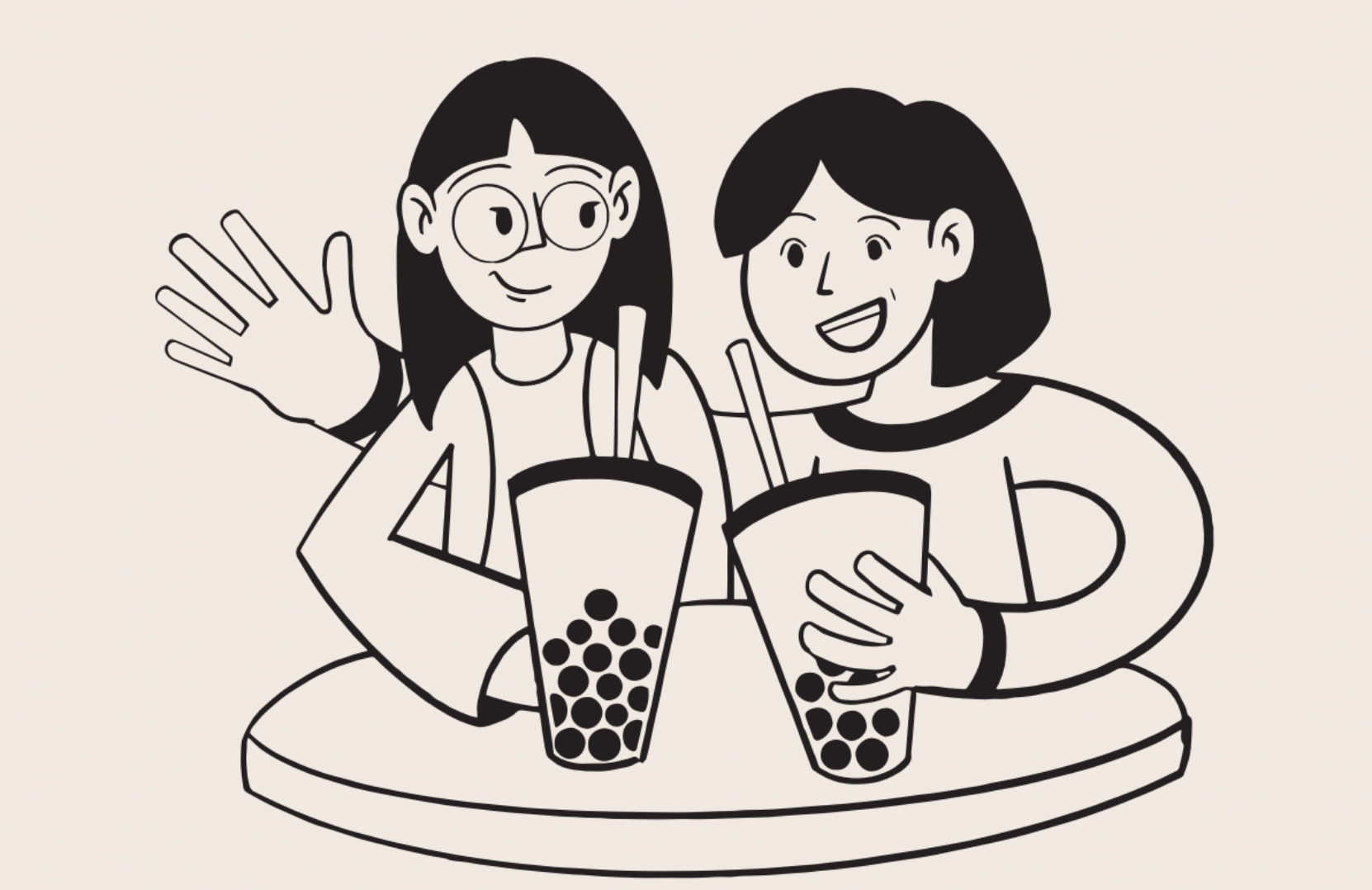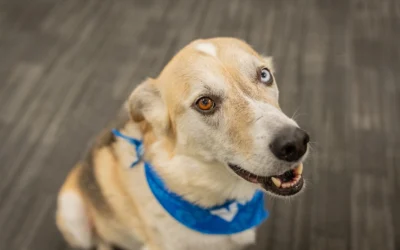Finding your niche on campus can be a challenge, especially when it’s your first year of university and your social skills are more than a little rusty after COVID. But there are so many options for on-campus community, and student groups and communities are working hard to bring a vibrant student culture to MacEwan University
“If you don’t like the people that you’re surrounded with or you don’t feel appreciated or you don’t feel valued, it’s going to be way harder to come to school,” says Lisa Kotelniski, a second-year student in music theatre performance who has been involved in musical theatre since the age of five. Kotelniski notes that students lost their communities at MacEwan during the pandemic and that social opportunities are slow to return. But as a member of the MacEwan theatre community, she says that the tightknit group is doing their best to ramp community back up and create an inclusive space for students.
We’ve really been trying to, as a group, create a strong community and create a place where everyone feels seen and heard — give them a safe space to create art,” she says. The group is committed to having a community made up of people you can trust, have fun with, and collaborate with.
Kotelniski says that besides having a ton of fun together, the theatre community is a space for belonging. “The beautiful thing with theatre is that I feel like a lot of us feel like we’re outcasts. But in this art, we feel like we’re not, and we can embrace each other and not be so hung up on the outside world.”
This year, Kotelniski and several other like-minded students started the Faculty of Fine Arts Club that will be up and running by the end of the semester. She hopes to continue facilitating community through this new club.
“At the end of the day, (fine arts students) are going to be looking for jobs with each other. We’re going to be getting each other jobs, we’re going to be working together,” she says. “We wanted to create a club that had the opportunity (for students) to collaborate and mix and mingle.”
William Salikin, the director of recruiting of the MacEwan chapter of CNSA (the Canadian Nursing Students Association), echoes Kotelniski’s thoughts about the loss of community through the pandemic.
“We all became very secluded and internalized,” Salikin says. “I always had this vision of what university was like, thanks to the media and all that, and then the pandemic hit. I went to university and (it was) nothing like what I expected.”
The CNSA at MacEwan is a student group organized to provide professional development opportunities, meet and greets, mentorship opportunities, and more, for nursing students. It’s a national group that has chapters across the country. This year, one of their major goals at the MacEwan chapter was creating community.
“It has been really heartwarming to see nursing students attend our volunteer initiatives and professional development opportunities and get to know them,” says Ashley Stoltz, the official delegate of the MacEwan CNSA chapter. “I like to hope that our group has had some hand in helping (nursing students) feel more comfortable in their studies and feel more supported and feel more connected. That’s the goal.”
This goal is especially important to Salikin, as some of his main responsibilities are recruiting more students for the group. After staring at all the black boxes during online pandemic classes, Salikin wanted to create a sense of cohesion in the CNSA — a family of sorts.
“I wanted to build a group that looks out for each other,” Salikin says. “Now we have third years hanging out in the hallways with first years, and we have fourth years giving advice…. It’s not as cliquish as it once was during the pandemic.”
“In the end, we’re all in this together. We’re all going to be working with each other when we graduate, and why not start building those bonds now?” he adds.
The meet and greets in particular have been a great way for students to connect. “We all just meet up and new students can meet the scary senior students that they don’t want to make eye contact with in the hallways,” Salikin reveals. “We want to normalize it — you know. Everyone’s just a student, and we’re all in the same boat together.”
Some of the CNSA’s other initiatives, like volunteering at the Green and Gold Community Garden, helping out at Meals on Wheels and the Food Bank, and completing a blood drive in competition against University of Alberta nurses (which MacEwan won), have also helped forge connections among nursing students. To celebrate the end of the year, the CNSA is hosting a gala.
At kihêw waciston, the Indigenous Centre at MacEwan, the focus is also very much on connections and community. “One of the main goals is creating a safe space for all students to come in and feel welcomed and loved,” says Jaycee Meneen, the student advisor at kihêw waciston, “because in ceremony, that’s what you feel when you walk into it. You feel warm and welcome. That’s the kind of feeling we want to facilitate here.”
In particular, Meneen hopes to foster an atmosphere of happiness and familial love you would feel when you go back home after being away for a long time. “(It’s) having those Indigenous ways of being and knowing, where we’re all like family and we’re all related. We all treat each other equally as brothers, sisters, aunties, and uncles.”
Meneen and her colleagues foster connection at kihêw waciston through ceremony, by celebrating Indigenous culture, connecting people to elders, and by working with other communities like Saddle Lake Cree Nation, Bigstone Cree Nation, Fort McKay First Nation, and more.
The centre also offers services like free tutoring, academic advising, cultural and personal supports, access to Wellness and Psychological Services, and the opportunity to talk with elders and knowledge keepers for students. “The main goal is providing as much support as we can for Indigenous students,” says Meneen. If students are having trouble finding a place of belonging on campus, Meneen says to stop by kihêw waciston. “It’s not just for Indigenous students but it’s for allies and people that just don’t feel at home yet,” she says. In Cree, kihêw waciston means Eagle’s Nest. “That’s what we hope to be,”
says Meneen. “All of our really awesome students come and rest every once in a while and then fly off and do great things when they’re done.”
“Post COVID, we are… still kind of figuring things out,” adds Menseen. “Especially our newer students…. They were more isolated when they were in high school, so they don’t really have these deeper bonds.”
But Menseen has seen an increased commitment at MacEwan to support students, foster community, and offer opportunities for different interests.
The Chess Fellowship at MacEwan started out of that same lack of community after the height of the pandemic. “We felt that chess was a good way to bring people together,” says Gabriel Ambutong, president of the student group. “People can gather around and have a way to make friends, meet people, and just to create a positive environment. That’s one of our visions or mandates, is to make sure people feel included, make sure that people are having fun, and make sure people feel like they have community belonging.”
Ambutong, along with Joseph A. La Torre (VP finance), Alem Tesfay (VP marketing), and Nhi Phan (vice president) are student councillors at SAMU who bonded over their shared love of chess during breaks between student council business. It was a great way to break the ice and get to know each other, Ambutong notes.
Mya Colwell
The Griff





0 Comments